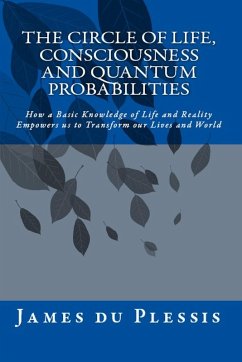
Probabilities : An aid to Faith (eBook, ePUB)

PAYBACK Punkte
0 °P sammeln!
In "Probabilities: An Aid to Faith," Martin Farquhar Tupper engages with the intersection of science and spirituality through a unique lens of Victorian thought. Crafted in a meditative style that evokes the philosophical discourse of his era, Tupper meticulously examines the probabilistic nature of belief and doubt. He employs logical reasoning to bridge the realms of empirical evidence and faith, arguing that a rational approach to probabilities can bolster spiritual convictions. The book is a reflection of the 19th-century preoccupation with harmonizing science and religion, indicative of t...
In "Probabilities: An Aid to Faith," Martin Farquhar Tupper engages with the intersection of science and spirituality through a unique lens of Victorian thought. Crafted in a meditative style that evokes the philosophical discourse of his era, Tupper meticulously examines the probabilistic nature of belief and doubt. He employs logical reasoning to bridge the realms of empirical evidence and faith, arguing that a rational approach to probabilities can bolster spiritual convictions. The book is a reflection of the 19th-century preoccupation with harmonizing science and religion, indicative of the burgeoning discussions on faith amidst the industrial revolution. Martin Farquhar Tupper, a poet and prose writer known for his didactic writings, drew upon his own struggles with faith and reason to produce this thoughtful work. Living in a time of rapid scientific advancements and social change, Tupper sought to navigate the complexities of belief, thus fostering a dialogue between rational thought and religious faith. His background in law and the arts gave him a distinctive voice, allowing him to articulate profound insights into the human condition. "Probabilities: An Aid to Faith" is highly recommended for readers interested in the philosophical underpinnings of belief systems, offering an enlightening examination of the delicate balance between faith and reason. Tupper's engaging prose invites readers to reflect on their own convictions, making this work both a scholarly resource and a personal guide for those navigating the complexities of modern belief.
Dieser Download kann aus rechtlichen Gründen nur mit Rechnungsadresse in A, B, BG, CY, CZ, D, DK, EW, E, FIN, F, GR, H, IRL, I, LT, L, LR, M, NL, PL, P, R, S, SLO, SK ausgeliefert werden.













